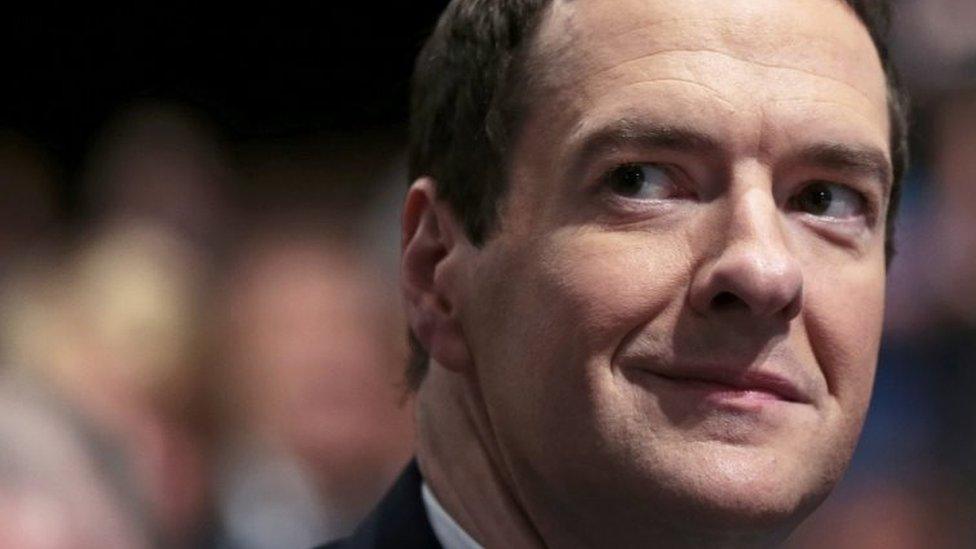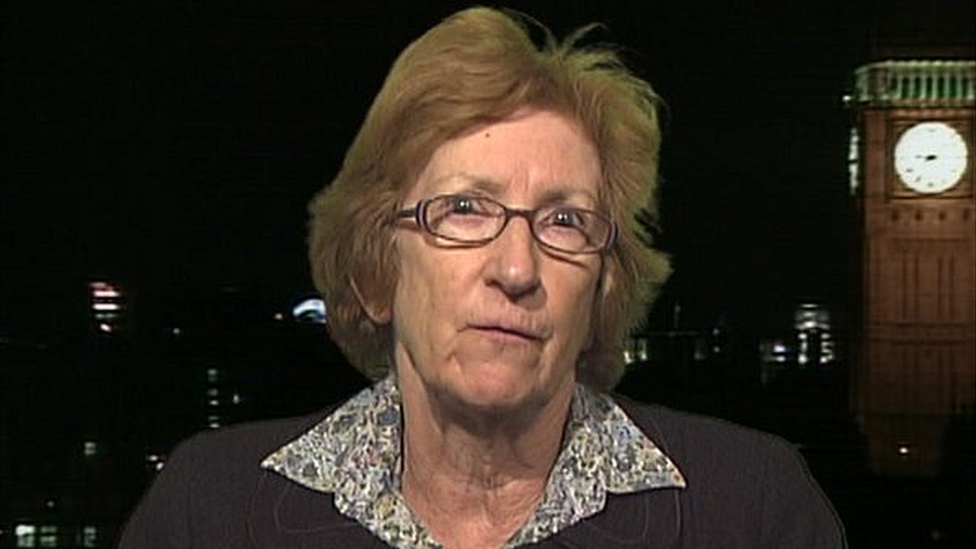Could 'fatal' Lords motion kill tax credit cuts?
- Published

George Osborne will be watching events in the Lords closely
In life, a fatal motion denotes a missed step on a railway platform, a moment's distraction at the car wheel, or even - perhaps - a scatological demise on the seat of ease.
But in politics, a fatal motion means only one thing: the death of a proposed new law, pushed off its legislative mortal coil by the votes of MPs and peers in the division lobbies of Parliament.
And that is the fate that some peers are threatening to inflict on the government's plans to cut more than four billion pounds of tax credits.
The government wants to introduce the cuts not though the traditional route of a Finance Bill but via so-called secondary legislation. This is how most laws are made - technical changes pushed quickly through Parliament within the framework of existing Acts.
As of now, peers will have several possible options on Monday afternoon.
Transitional measures
They could vote to kill the cuts outright by supporting a so-called "fatal motion" tabled by the Lib Dems. This would simply "decline to approve" the government's plans.

Lady Meacher wants to delay tax credit cuts
Or they could vote for a motion tabled by the crossbench peer, Lady Meacher. This would delay the tax credit cuts until the government has taken into account an impact analysis by the Institute for Fiscal Studies "and considered possible mitigating action".
Or peers could vote for a Labour motion tabled by Lady Hollis. This would delay the cuts while the government introduced transitional measures to protect claimants affected by the changes.
Now the government is taking umbrage about this. It says the Lords has no business trying to kill off secondary legislation. It is not something the Lords traditionally does. Clerks can find only five occasions since World War Two - in 1968, twice in 2000, 2007 and 2012. (Nerds note: see page 198 of the House of Lords Companion to the Standing Orders , externalfor the detail)
And furthermore, ministers also say that it would be fundamentally wrong for the Lords to break the longstanding constitutional rule that the Upper House does not decide financial matters. This was established most recently in 1911 during the constitutional gridlock that followed a decision by peers to block the Liberal Party's "people's budget".
'Unprecedented challenge'
But the crucial government argument is that even the Labour and crossbench motions to delay the implementation of the cuts should be considered as fatal motions.
The Tories say that any motion that does not approve the secondary legislation is a fatal motion.
"If you are putting a needle into someone's arm and pumping them slowly full of heroin, you are still killing them, just not quickly," said one source.
"There is no precedent for a delay motion. It binds the hands of the government. The House of Lords is trying to grab a new power from the House of Commons over financial matters. This is an unprecedented challenge to the authority of the House of Commons."
Labour dispute this analysis.
They say that the Hollis motion declining to consider the tax credit cuts until transitional arrangements are in place is not a fatal motion because it merely delays the cuts, rather than kills them.
They also note that the government chose to introduce the cuts via secondary legislation rather than a traditional finance bill which is automatically excluded from the Lords.
'Not fatal'
They insist they have every constitutional right to ask the government to think again and point to a resolution that peers backed in October 1994 "that this House affirms its unfettered freedom to vote on any subordinate legislation submitted for its consideration". They also argue that these cuts were not included in the Conservative manifesto and thus peers are not bound by the Salisbury-Addison convention under which they do not block the firm commitments of an incoming government.
Lady Meacher is equally clear. She believes her motion is a "nuisance but not fatal".
As for the officials and clerks in the House of Lords, they are rather caught in the middle.
They are clear that all the options open to peers on Monday are legitimate from a constitutional point of view. But they equally admit that all the options would have substantial political consequences.
So watch this space.
A dispute about tax credit cuts is transforming into a constitutional row. In the House of Commons today, the Tory MP Jacob Rees Mogg suggested that the government might consider creating more Conservative peers to get its way. And the prime minister did not entirely rule that option out.